Chapter 28
Bush, Clinton, and a Changing World
By Boundless
The 1988 United States presidential election was defined by the victory of Republican George H.W. Bush over Democrat Michael Dukakis.
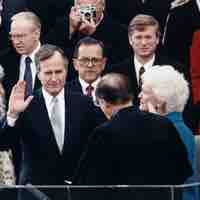
During George H. W. Bush's presidency from 1989 to 1993, he negotiated the end of the Cold War, struggled with a large federal deficit, and signed several new laws.
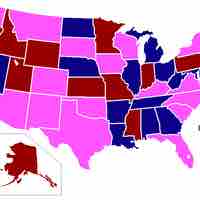
Republican President Bush faced opposition for many of his initiatives by the Democratic Congress, resulting in a gridlocked government.
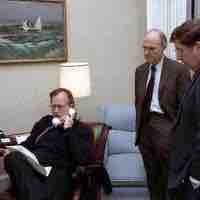
Foreign policy during George H. W. Bush's presidency was characterized by military operations in Panama and the Gulf War.
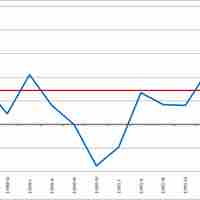
Under George H. W. Bush's administration in the early 1990s, the United States entered into a mild recession that lasted for six months.
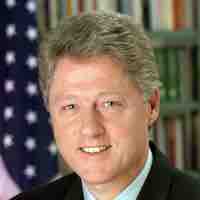
The 1992 presidential election featured Republican President George H.W. Bush, Democratic candidate Bill Clinton, and independent candidate Ross Perot.
Democratic President Bill Clinton served two terms from 1993 to 2001, during a period of great economic growth in the United States.
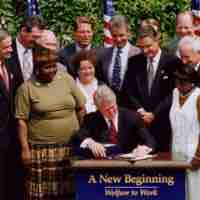
Clintonomics refers to the economic policies of United States President Bill Clinton during the 1990s.

The "New Economy" refers to the U.S. transition from a manufacturing-based economy to a service-, information-, and technology-based economy.

Clinton appointed First Lady Hillary Rodham Clinton to lead a task force on healthcare reform during his first term in office.

Incumbent Democratic President Bill Clinton won reelection over Republican candidate Bob Dole and Reform Party candidate Ross Perot in the 1996 election.
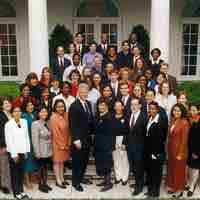
Clinton's domestic policies included One America, reforms of the criminal justice system, and the implementation of Don't Ask, Don't Tell and DOMA.

With the end of the Cold War, President Clinton was faced with international crises in the Middle East, the Balkans, Africa, and Haiti.
In 1998, Clinton was impeached for perjury and obstruction of justice by the House of Representatives; he was later acquitted by the Senate.
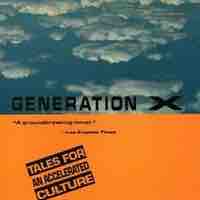
By the 1990s, the United States had experienced a population explosion, with the population doubling since 1932.

The Immigration Act of 1990 increased the number of immigrants permitted to enter the U. S. from 500,000 to 700,000.
The Information Age refers to the current period in which information is easily accessed and transferred by individuals.
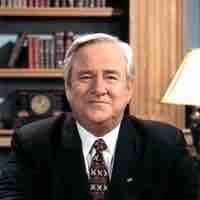
By the 1980s, the Religious Right made substantial gains in United State politics, as conservative Democrats were alienated by their Party's support for liberal social views.